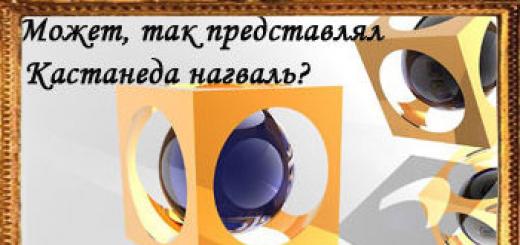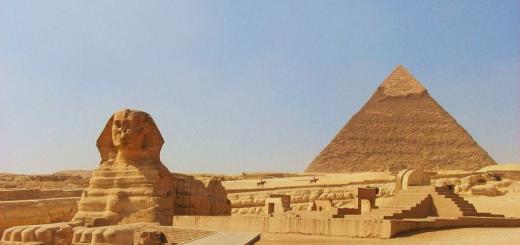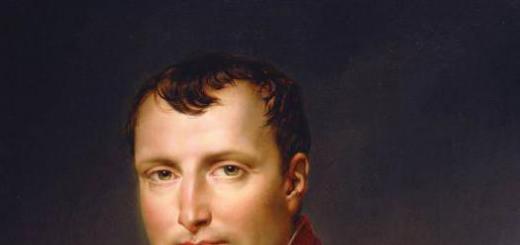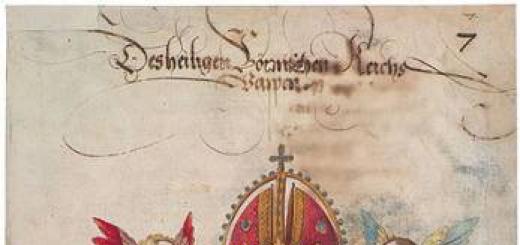Trotsky (Bronstein) L. D. (1879-1940) - People's Commissar for foreign affairs in the first composition of the SNK. On his instructions, the People's Commissariat of Foreign Affairs began to publish secret documents of the tsarist and Provisional governments. He sought to establish contacts with the governments of the Entente countries and the United States, sent them notes with peace proposals. But the ambassadors refused to accept these documents. Trotsky was the head of the Soviet delegation at the 2nd stage of negotiations with Germany and its allies in Brest-Litovsk, where, on behalf of Lenin, he took the tactic of dragging out the negotiations. On January 28, 1918, he made a statement at a meeting of delegations: "Neither peace, nor war, but dissolve the army." This declaration by Trotsky was approved at a meeting of the All-Russian Central Executive Committee on 14 February. Nevertheless, on February 22, Trotsky resigned from the post of People's Commissar for Foreign Affairs.
Chicherin G.V.(1872-1936) - Soviet statesman and diplomat. From May 30, 1918 - People's Commissar for Foreign Affairs. Participated in the second series of negotiations in Brest-Litovsk. He was an active participant in the negotiations and signed the Soviet-Turkish, Soviet-Iranian and Soviet-Afghan treaties of 1920. He headed the Soviet delegation at conferences in Genoa (1922) and Lausanne (1922-1923). During the work of the Genoa Conference, he signed the Treaty of Rapallo with Germany. At the Lausanne Conference, in a number of speeches, he substantiated the interest of the RSFSR in the independence of Turkey and the regime of the Straits, which ensures the security of Soviet ports on the Black Sea. Signed non-aggression and neutrality pacts with Turkey (1925), Iran (1927). In 1930 he resigned for health reasons.
Litvinov M. M. (Max Ballakh) (1876-1951) - a member of the Bolshevik Party since 1898. Iskra agent. Since 1918 he was a member of the Collegium of the People's Commissariat for Foreign Affairs. In 1918 - plenipotentiary in England. In 1920 - plenipotentiary in Estonia. Since 1921 - Deputy People's Commissar for Foreign Affairs. He was a member of the Genoa Conference in 1922. He was the chairman of the Soviet delegation at the Hague Conference in 1922. In December of the same year, he chaired the Moscow Conference on Disarmament, in which, along with the RSFSR, Poland, Lithuania, Latvia, Estonia and Finland participated. In 1927-1930. made numerous efforts to conclude a disarmament agreement. In 1930 he was appointed People's Commissar for Foreign Affairs. With his arrival in the People's Commissariat for Foreign Affairs, a gradual reorientation began foreign policy USSR from Germany to Western democracies. He negotiated with the United States on the resumption of diplomatic relations (which were restored in 1933). He was a consistent fighter for the implementation of the idea of creating a system of collective security in Europe. In 1934-1938. represented the USSR in the Council of the League of Nations. In 1936, he was the head of the Soviet delegation at the conference in Montreux, which ended with the signing of an agreement on the regime of the Black Sea straits. In May 1939, in connection with the emerging new change in the foreign policy orientation of the USSR (this time towards Germany), he was dismissed. With the beginning of the Great Patriotic War and the formation of the anti-Hitler coalition, he was appointed Deputy People's Commissar for Foreign Affairs and Ambassador of the USSR to the United States. He made a great contribution to the development of inter-allied relations during the Second World War.
Molotov (Scriabin) V. M.(1890-1986) - in 1921-1930 - Secretary of the Central Committee of the CPSU (b). In 1930-1941 - Chairman of the Council of People's Commissars of the USSR. Since May 3, 1939 - People's Commissar for Foreign Affairs. His replacement in this post by M. M. Litvinov was caused by the search for an agreement with Germany, which culminated in the signing of the Soviet-German non-aggression pact on August 23 of the same year. At the same time, an additional secret protocol was signed, delimiting spheres of influence between Germany and the USSR in Eastern Europe. After entering Soviet troops in the western provinces of Poland in September 1939, Molotov and Ribbentrop signed on September 29 the Treaty of Friendship and the Border between Germany and the USSR and a package of new secret agreements to it. Between the autumn of 1939 and the summer of 1940, Molotov managed to achieve the conclusion of mutual assistance agreements with the Baltic states. Following this, Soviet troops were introduced into their territory in accordance with the treaties and a change of governments took place. In the summer of 1940 they were included in the USSR. Similar pressure on Finland did not give positive results, which led to the Soviet-Finnish war in November 1939 - March 1940. In November 1940, Molotov negotiated in Berlin on the possible accession of the USSR to the Tripartite Pact of Germany, Italy and Japan. On June 22, 1941, on behalf of the Soviet leadership, he spoke on the radio with a notice of the beginning of the war. During the Second World War, on behalf of Stalin, he undertook numerous negotiations with the Allies on a joint struggle against Germany and its satellites. Participated in almost all international conferences this period at the highest level. In the post-war years, he made active efforts aimed at expanding the political and military presence of the USSR in various regions of the world. For his intransigence and toughness, he was nicknamed "Mr. NO" by Western negotiating partners. March 5, 1949 was removed from the post of Minister of Foreign Affairs, remaining Deputy Chairman of the Council of Ministers of the USSR. On March 5, 1953, after the death of Stalin, he was again appointed Minister of Foreign Affairs and First Deputy Chairman of the Council of Ministers. He remained in this position until 1956. Since 1957 - Ambassador to Mongolia. In 1960-1962 - Representative of the USSR in the IAEA. Since 1962 - retired.
Vyshinsky A. Ya.(1883-1954) - in 1935-1939 - Prosecutor of the USSR. Since 1939 - Deputy Chairman of the Council of Ministers of the USSR. In 1940-1946. - First Deputy People's Commissar for Foreign Affairs. Participated in the Yalta and Berlin conferences. As a representative of the People's Commissariat for Foreign Affairs, he participated in the signing ceremony of
and about the unconditional surrender of Germany on May 8, 1945. In 1949-1953. was the Minister of Foreign Affairs of the USSR. After Molotov returned to this post in 1953, he was appointed Plenipotentiary Representative of the USSR to the UN.
Shepilov D. T.(1905-1995) - Soviet party and statesman. Editor of the newspaper "Pravda". At the XX Congress of the CPSU, he was elected Secretary of the Central Committee and a candidate member of the Presidium of the Central Committee of the CPSU. On June 2, 1956, during a visit to Moscow, J. B. Tito was appointed Minister of Foreign Affairs instead of V. M. Molotov. It was a gesture of goodwill on the part of N. S. Khrushchev, since it was Molotov who took a tough stance towards Yugoslavia from the end of the 40s. On June 20, during this visit, Soviet-Yugoslav documents were signed that testified to the restoration in full of previously interrupted relations: the Joint Statement of the Governments and the Declaration on Relations between the CPSU and the Union of Communists of Yugoslavia. In October of the same year, D. Shepilov, together with other members of the Soviet leadership, was trying to find a way out of the crisis situations in Poland and Hungary. On October 30, the Soviet leadership comes out with a statement about revising relations with the countries of people's democracy, about striving to build them on the principles of complete equality. On November 5, the USSR speaks in the Security Council condemning the Franco-British invasion of Suez. On December 17, the USSR proposes to conclude a non-aggression pact between the blocs - NATO and the Warsaw Pact. On February 15, 1957, D. T. Shepilov was replaced as Minister of Foreign Affairs by A. A. Gromyko. In the summer of the same year, at a meeting of the Presidium of the Central Committee, he joined the "anti-party group" of Malenkov, Molotov, Kaganovich and advocated the resignation of Khrushchev. After that, at the Plenum of the Central Committee, he was deprived of the posts of secretary of the Central Committee and candidate member of the Presidium and was appointed director of the Institute of Economics of the Academy of Sciences of the Kirghiz SSR in Frunze. Soon he was moved from there and worked in the Main Archive Department under the Council of Ministers of the USSR until his retirement.
Gromyko A. A.(1909-1989) - Head of the Department of American Countries of the Ministry of Foreign Affairs (1939). Since the autumn of 1939, he was an adviser to the USSR embassy in the USA. In 1943-1946. - Ambassador of the USSR to the United States and at the same time envoy to the Republic of Cuba. Head of the USSR delegation at a conference in Dumbarton Oaks in 1944 on the creation of the UN. Member of the Crimean and Berlin conferences in 1945. Member of the USSR delegation at the United Nations conference in San Francisco in 1945. Since 1946 - Permanent Representative of the USSR to the UN Security Council and at the same time Deputy Minister of Foreign Affairs of the USSR. Later - USSR Ambassador to Great Britain and Deputy, First Deputy Minister of Foreign Affairs of the USSR. From February 15, 1957 - Minister of Foreign Affairs. A. A. Gromyko - a whole era in the Soviet foreign policy of the mid-50s - mid-80s, the author and active participant in many international projects, conferences, etc., one of the foreign ministers - record holders for the length of stay in positions (continuous - 28 years).
Shevardnadze E. A.(b. 1928) - Minister of Foreign Affairs of the USSR in 1985-1991. The closest associate of MS Gorbachev in the implementation of the policy of "new political thinking". Participant in the negotiation process on nuclear disarmament in 1985-1991, removal of tension in East-West relations. A supporter of unblocking regional conflicts. These changes were based on the new concept of foreign policy developed by M. Gorbachev and E. Shevardnadze, which included: rejection of the conclusion about the split modern world into two warring socio-political systems; recognition of the world as integral and indivisible; the proclamation of the impossibility of solving international problems by force; declaring as a universal way to resolve international issues not the balance of power between the two systems, but the balance of their interests; rejection of the principle of proletarian internationalism, recognition of the priority of universal human values over class, national, ideological, religious and others. In December 1990, E. Shevardnadze resigned in protest against the "impending dictatorship."
Bessmertnykh A. A.(b. 1933) - Minister of Foreign Affairs of the USSR in January-August 1991. Passed all stages of a diplomatic service career; was an assistant, senior assistant, attache of the press department of the Ministry of Foreign Affairs, an employee of the UN Secretariat in New York, second and first secretary of the secretariat of the Minister of Foreign Affairs of the USSR, first secretary, adviser, minister-counselor of the USSR Embassy in the USA, member of the collegium of the Ministry of Foreign Affairs, head of the US Department of the Ministry of Foreign Affairs THE USSR. In 1986-1988 - Deputy Minister of Foreign Affairs. In 1988-
1990s - First Deputy Minister of Foreign Affairs. In 1990-1991 - Ambassador of the USSR to the USA. Behind a short time During his tenure as Minister Bessmertnykh, he took part in M. Gorbachev's negotiations with Japanese and South Korean leaders in April, took part in the final meeting of the Council for Mutual Economic Assistance (June, Budapest), the liquidation of the Warsaw Pact (July, Prague), the signing of the Treaty of Friendship and Cooperation between the USSR and Spain (July), the preparation and implementation of M. Gorbachev's visit to London for a meeting of the "Big Seven" (July), the preparation and signing of the Soviet-American Treaty on the Reduction and Limitation of Strategic Offensive Arms (July 31).
Pankin b. D. (b. 1931) - during the days of the August events of 1991 in Moscow, he refused to recognize the State Emergency Committee. After returning to Moscow, M. Gorbachev was appointed to the post of Minister of Foreign Affairs of the USSR, in which he stayed for a hundred days - until November 19, 1991. During this time, in addition to numerous meetings with foreign representatives, the main event, which was prepared and in which the Minister of Foreign Affairs participated affairs, there was a Madrid summit on the Arab-Israeli settlement. On November 19, 1991, B. Pankin was appointed Ambassador of the USSR to Great Britain, and E. Shevardnadze again became the Minister.
Kozyrev A.V.(b. 1951) - statesman of Russia. He went through all the steps of the career ladder of a diplomat: from an assistant to the Minister of Foreign Affairs of Russia (appointed by him in October 1990). The period of his activity in this post (until January 1996) saw a radical restructuring of Russia's foreign policy. At the same time, the opposition constantly accused Kozyrev of the absence of a coherent concept of the country's foreign policy. Contrasting him with Molotov ("Mr. NO"), representatives of the opposition often called Kozyrev "Mr. YES." The main accusation leveled against him was that Russia's foreign policy was of secondary importance to such an important direction as the development of ties with the CIS countries. At the same time, during his tenure as minister, the threat of confrontation with the West has practically receded. Russia joined the Council of Europe, joined the NATO Partnership for Peace program, joined the International Monetary Fund and a number of other international organizations, announced the redirection of its missiles from the territory of Western countries to uninhabited areas of the Earth, etc. All these measures, according to the leadership of the Ministry of Foreign Affairs and Russia, were necessary for the country's return to the European and world community as a full participant and partner. In January 1996, in connection with his election as a deputy of the State Duma, A. Kozyrev resigned from the post of minister.
Primakov E. M.(b. 1929) - since January 1996 - Minister of Foreign Affairs of Russia. Since September 1998 Chairman of the Government of the Russian Federation.
) years with quality People's Commissariat for Foreign Affairs and was one of the first people's commissariats formed in accordance with the decree "On the Establishment of the Council of People's Commissars".
On December 30, 1922, the First Congress of Soviets of the USSR adopted the Treaty on the Formation of the Union of Soviet Socialist Republics (USSR). The second session of the Central Executive Committee of the USSR approved on July 6, 1923 the Constitution of the USSR, according to Articles 49 and 51 of which was formed USSR NKID.
On November 12, 1923, the 4th session of the Central Executive Committee of the USSR approved a new regulation on the NKID of the USSR. The People's Commissariats of the Union Republics and their representative offices abroad were liquidated. At the same time, the Offices of Commissioners of the People's Commissariat of Foreign Affairs of the USSR were created in the Union republics.
In 1923-1925, the head of the Office of the authorized NKID of the USSR under the Council of People's Commissars of the RSFSR was Viktor Leontievich Kopp, and in 1925-1927 - Semyon Ivanovich Aralov.
In 1944, the People's Commissariat for Foreign Affairs of the RSFSR was recreated. In 1944-1946, Anatoly Iosifovich Lavrentiev was the people's commissar. In 1946 it was reformed into the Ministry of Foreign Affairs of the RSFSR.
In the early 1930s, the second stage of recognition of the USSR began, when diplomatic relations were established with Spain, the USA, Bulgaria, Hungary, Albania, Romania, Czechoslovakia, Belgium, Luxembourg, Colombia.
In December 1936, in accordance with the newly adopted Constitution of 1936, the NKID changed its name. He began to be called People's Commissariat for Foreign Affairs, but not for foreign affairs, as it was before.
People's Commissars for Foreign Affairs
Wikimedia Foundation. 2010 .
See what "People's Commissar for Foreign Affairs of the USSR" is in other dictionaries:
- (NKID USSR or People's Commissariat of Foreign Affairs) the state body of the USSR responsible for the foreign policy of the Soviet state in 1923-1946. Contents 1 History 2 People's Commissariat Manual ... Wikipedia
NKVD People's Commissariat of Internal Affairs of the RSFSR (NKVD RSFSR) central authority government controlled RSFSR to combat crime and maintain public order in 1917-1930. During its existence, the NKVD of the RSFSR performed ... ... Wikipedia
The People's Commissariat for Foreign Affairs (NKID or Narkomindel) is a state body of the RSFSR / USSR in the rank of a ministry responsible for the foreign policy of the Soviet state in 1917-1946. History Originally formed by decree ... Wikipedia
"SNK" redirects here. See also other meanings. Council of People's Commissars of the USSR (SNK, Council of People's Commissars) from July 6, 1923 to March 15, 1946, the highest executive and administrative (in the first period of existence, also legislative) body ... ... Wikipedia
The People's Commissariat for Foreign Affairs (NKID or Narkomindel) is a state body of the RSFSR / USSR in the rank of a ministry responsible for the foreign policy of the Soviet state in 1917-1946. History Originally formed by decree ... Wikipedia
- (NKID or Narkomindel) the central executive state body of the RSFSR responsible for the foreign policy of the Soviet state in 1917-1923. Contents 1 History 2 People's Commissariat Manual ... Wikipedia
February Revolution. Military defeats on the fronts of the First World War and the growing economic chaos caused public unrest. In February 1917, bread riots in the capital led to a general strike, the result of which was the abdication ... ... Collier Encyclopedia electronic book
years with quality People's Commissariat for Foreign Affairs and was one of the first people's commissariats formed in accordance with the decree "On the Establishment of the Council of People's Commissars".
On December 30, 1922, the First Congress of Soviets of the USSR adopted the Treaty on the Formation of the Union of Soviet Socialist Republics (USSR). The second session of the Central Executive Committee of the USSR approved on July 6, 1923 the Constitution of the USSR, according to Articles 49 and 51 of which was formed USSR NKID.
On November 12, 1923, the 4th session of the Central Executive Committee of the USSR approved a new regulation on the NKID of the USSR. The People's Commissariats of the Union Republics and their representative offices abroad were liquidated. At the same time, the Offices of Commissioners of the People's Commissariat of Foreign Affairs of the USSR were created in the Union republics.
In 1923-1925, the head of the Office of the authorized NKID of the USSR under the Council of People's Commissars of the RSFSR was Viktor Leontievich Kopp, and in 1925-1927 - Semyon Ivanovich Aralov.
In 1944, the People's Commissariat for Foreign Affairs of the RSFSR was recreated. In 1944-1946, Anatoly Iosifovich Lavrentiev was the people's commissar. In 1946 it was reformed into the Ministry of Foreign Affairs of the RSFSR.
In the early 1930s, the second stage of recognition of the USSR began, when diplomatic relations were established with Spain, the USA, Bulgaria, Hungary, Albania, Romania, Czechoslovakia, Belgium, Luxembourg, Colombia.
In December 1936, in accordance with the newly adopted Constitution of 1936, the NKID changed its name. He began to be called People's Commissariat for Foreign Affairs, but not for foreign affairs, as it was before.
People's Commissars for Foreign Affairs
Wikimedia Foundation. 2010 .
See what "People's Commissariat for Foreign Affairs" is in other dictionaries:
People's Commissariat of Defense of the USSR, the highest military department of the USSR in the 1930s-1940s. In the 1920s and 1930s, the highest military body of the RSFSR/USSR was called the People's Commissariat for Military and Naval Affairs (Narkomvoenmor). June 20, 1934 ... ... Wikipedia
The People's Commissariat for Foreign Affairs (NKID or Narkomindel) is a state body of the RSFSR / USSR in the rank of a ministry responsible for the foreign policy of the Soviet state in 1917-1946. History Originally formed by decree ... Wikipedia
Central government agency in Russian Empire, which existed from 1802 until October 25 (November 7), 1917; handled relations with foreign countries. History Established by decree of Alexander I on September 8, 1802 (manifesto "On ... ... Wikipedia
- (NKID USSR or People's Commissariat of Foreign Affairs) the state body of the USSR responsible for the foreign policy of the Soviet state in 1923-1946. Contents 1 History 2 People's Commissariat Manual ... Wikipedia
- (Ministry of Foreign Affairs of Ukraine) ... Wikipedia
The Minister of Foreign Affairs of Azerbaijan (Azerbaijani Azərbaycan Xarici Işlər Naziri) is the head of the Foreign Ministry of Azerbaijan. The Minister of Foreign Affairs of Azerbaijan is appointed to the position and removed from office by the President of Azerbaijan ... ... Wikipedia
- (Georgian საქართველოს საგარეო საქმეთა მინისტრი) Head of the Foreign Ministry of Georgia. The Minister of Foreign Affairs of Georgia is appointed to office and removed from office by the President of Georgia. The current minister is Grigol Vashadze. Contents 1 List ... ... Wikipedia
- (Azerbaijani Azərbaycan Xarici Işlər Naziri) Head of the Foreign Ministry of Azerbaijan. The Minister of Foreign Affairs of Azerbaijan is appointed and dismissed by the President of the Republic of Azerbaijan. The current Minister Elmar ... ... Wikipedia
The Ministry of Foreign Trade is the main body of the state monopoly of foreign trade in the USSR. Contents 1 History 1.1 Decree on the nationalization of foreign trade ... Wikipedia
Books
- Moscow-Washington. Politics and diplomacy of the Kremlin, 1921–1941. In 3 volumes. Volume 1. 1921-1928, . The collection contains documents from the Archive of the President of the Russian Federation on the history of Soviet-American relations in the interwar period. Many unknown materials are introduced into scientific circulation, covering issues ...
years with quality People's Commissariat for Foreign Affairs and was one of the first people's commissariats formed in accordance with the decree "On the Establishment of the Council of People's Commissars".
On December 30, 1922, the First Congress of Soviets of the USSR adopted the Treaty on the Formation of the Union of Soviet Socialist Republics (USSR). The second session of the Central Executive Committee of the USSR approved on July 6, 1923 the Constitution of the USSR, according to Articles 49 and 51 of which was formed USSR NKID.
On November 12, 1923, the 4th session of the Central Executive Committee of the USSR approved a new regulation on the NKID of the USSR. The People's Commissariats of the Union Republics and their representative offices abroad were liquidated. At the same time, the Offices of Commissioners of the People's Commissariat of Foreign Affairs of the USSR were created in the Union republics.
In 1923-1925, the head of the Office of the authorized NKID of the USSR under the Council of People's Commissars of the RSFSR was Viktor Leontievich Kopp, and in 1925-1927 - Semyon Ivanovich Aralov.
In 1944, the People's Commissariat for Foreign Affairs of the RSFSR was recreated. In 1944-1946, Anatoly Iosifovich Lavrentiev was the people's commissar. In 1946 it was reformed into the Ministry of Foreign Affairs of the RSFSR.
In the early 1930s, the second stage of recognition of the USSR began, when diplomatic relations were established with Spain, the USA, Bulgaria, Hungary, Albania, Romania, Czechoslovakia, Belgium, Luxembourg, Colombia.
In December 1936, in accordance with the newly adopted Constitution of 1936, the NKID changed its name. He began to be called People's Commissariat for Foreign Affairs, but not for foreign affairs, as it was before.
People's Commissars for Foreign Affairs
Wikimedia Foundation. 2010 .
- People's Commissariat of Agriculture
- People's Commissariat of Foreign Affairs of the USSR
See what "People's Commissariat for Foreign Affairs" is in other dictionaries:
People's Commissariat of Foreign Affairs of the USSR
People's Commissariat of Military Affairs- People's Commissariat of Defense of the USSR, the highest military department of the USSR in the 1930s-1940s. In the 1920s and 1930s, the highest military body of the RSFSR/USSR was called the People's Commissariat for Military and Naval Affairs (Narkomvoenmor). June 20, 1934 ... ... Wikipedia
People's Commissar for Foreign Affairs of the USSR- The People's Commissariat for Foreign Affairs (NKID or People's Commissariat of Foreign Affairs) is a state body of the RSFSR / USSR in the rank of a ministry responsible for conducting the foreign policy of the Soviet state in 1917-1946. History Originally formed by decree ... Wikipedia
Ministry of Foreign Affairs of the Russian Empire- the central state institution in the Russian Empire, which existed from 1802 to October 25 (November 7), 1917; handled relations with foreign countries. History Established by decree of Alexander I on September 8, 1802 (manifesto "On ... ... Wikipedia
People's Commissariat for Foreign Affairs of the USSR- (NKID USSR or People's Commissariat of Foreign Affairs) the state body of the USSR responsible for the foreign policy of the Soviet state in 1923-1946. Contents 1 History 2 People's Commissariat Manual ... Wikipedia
Ministry of Foreign Affairs of Ukraine- (Ministry of Foreign Affairs of Ukraine) ... Wikipedia
Ministers of Foreign Affairs of Azerbaijan- Minister of Foreign Affairs of Azerbaijan (Azerbaijani Azərbaycan Xarici Işlər Naziri) head of the Foreign Ministry of Azerbaijan. The Minister of Foreign Affairs of Azerbaijan is appointed to the position and removed from office by the President of Azerbaijan ... ... Wikipedia
Minister of Foreign Affairs of Georgia- (Georgian საქართველოს საგარეო საქმეთა მინისტრი) Head of the Foreign Ministry of Georgia. The Minister of Foreign Affairs of Georgia is appointed to office and removed from office by the President of Georgia. The current minister is Grigol Vashadze. Contents 1 List ... ... Wikipedia
Minister of Foreign Affairs of Azerbaijan- (Azerbaijani Azərbaycan Xarici Işlər Naziri) Head of the Foreign Ministry of Azerbaijan. The Minister of Foreign Affairs of Azerbaijan is appointed and dismissed by the President of the Republic of Azerbaijan. The current Minister Elmar ... ... Wikipedia
People's Commissariat of Foreign Trade of the Russian Federal Financial Markets Service- The Ministry of Foreign Trade is the main body of the state monopoly of foreign trade of the USSR. Contents 1 History 1.1 Decree on the nationalization of foreign trade ... Wikipedia
Books
- Moscow-Washington. Politics and diplomacy of the Kremlin, 1921–1941. In 3 volumes. Volume 1. 1921-1928, . The collection contains documents from the Archive of the President of the Russian Federation on the history of Soviet-American relations in the interwar period. Many unknown materials are introduced into scientific circulation, covering issues ...
About the People's Commissar for Foreign Affairs of the USSR during the Great Patriotic War V.M. Molotov
Paying a well-deserved tribute to the outstanding Soviet military leaders of the Great Patriotic War, we often forget that the Victory was forged not only on the battlefield. Importance the country had a competent foreign policy. Outstanding skill has always been required from diplomats, and especially from Soviet ones, and even in the context of the Second World War. On the eve of Victory Day, it is appropriate to recall and pay tribute to the People's Commissar for Foreign Affairs of the USSR in those hard years– V.M. Molotov.
He did not prepare specifically for leadership foreign policy. Despite this, the largest Western politicians unanimously ranked him among the greatest diplomats of all times and peoples. He was not fluent in any foreign language. True, during his life he gradually learned to read and understand texts in French, German and English. But over the course of (in total) thirteen years, he had many times on behalf of the Soviet state to conduct the most difficult negotiations with foreign leaders and diplomats.
Vyacheslav Mikhailovich Skryabin was born on March 9 (n.st.) 1890 in the Kukarka settlement of the Vyatka province (now the city of Sovetsk). In Kazan, Scriabin entered a real school. There, in 1906, he joined the Bolshevik Party. He graduated from the real school as an external student upon his return from the Vologda exile only in 1911. Judging by the not very remote place of exile, the young Scriabin had not yet had time to accomplish high-profile deeds in the revolutionary field at that time. In 1912, Scriabin entered the economics department of the St. Petersburg Polytechnic University, but studied there for only two years. His main occupation again became the revolutionary struggle.
Scriabin participated in the creation of the Bolshevik newspaper Pravda, was the editorial secretary. And in 1915 he was exiled for the second time, this time far away - to the Irkutsk province. In the same year, he took the party pseudonym Molotov.
Shortly before February Revolution Molotov escaped from exile and again found himself in St. Petersburg, where he was co-opted into the Russian Bureau of the Central Committee of the RSDLP (b). Old encyclopedias reported that at the time of the February Revolution, Molotov headed the Russian Bureau of the Central Committee. In any case, by the time the autocracy was overthrown, Molotov, despite his youth, was already one of the most authoritative members of the party among those who were free in Russia.
Immediately after the February Revolution, the return of prominent party figures from exile and emigration relegated Molotov to secondary roles. He became a more prominent figure after graduation. civil war. At the Tenth Congress of the RCP (b) in March 1921, he was elected a member of the Central Committee, and at the plenum held at the same time - the de facto first secretary of the Central Committee. In 1922, with the establishment of the post Secretary General, for which I.V. Stalin, Molotov moved to a second role in the Secretariat.
In 1930, Molotov headed the Council of People's Commissars (SNK) of the USSR instead of A.I. Rykov, accused of "right deviation".
Then, in the early 1930s, Molotov hardly thought that he would have to directly conduct Soviet foreign policy for a long time. The People's Commissar for Foreign Affairs was a longtime deputy G.V. Chicherina - M.M. Litvinov. True, leaving the post in 1930, Chicherin named Molotov as one of his possible successors, and not Litvinov, with whom he was “at odds”. But almost all of the 30s, Litvinov conducted Soviet foreign policy quite confidently. The undoubted successes of his diplomacy were: the recognition of the USSR by the United States (1933), the admission of the USSR to the League of Nations (1934) and the conclusion of an agreement on mutual assistance with France (1935). In those years Soviet Union positioned itself as the vanguard of forces fighting against a new world war.
In 1938, when the Second World War became inevitable, the need arose for a particularly skillful policy of maneuvering between the camps of the imperialist powers, which would allow the USSR to remain out of the global battle for as long as possible.
The old rhetoric and the old methods were no longer suitable for this. After Munich, convinced of the desire of the Western powers to condone Hitler's aggression in the East, Stalin began to think about how to seize the initiative, negotiate with Germany himself, redirecting the vector of its expansion, at least temporarily, to the West. Litvinov, who defended the idea of a new Entente with might and main, was not suitable for this. In May 1939, he was dismissed from the post of People's Commissar for Foreign Affairs. Molotov combined both posts - the chairman of the government and the head of the foreign affairs department.
Enough has already been written about the non-aggression pact with Germany. Those who recognize its positive significance for the state interests of the USSR invariably appreciate the merit of Molotov in reaching this agreement.  Many historians prove that Molotov did not have own position: his foreign policy line was entirely the line of Stalin, he only carried out the instructions of the leader. It should be noted that the actual head of state, such as Stalin was in those years in the USSR, always and everywhere determines the main directions of foreign policy.
Many historians prove that Molotov did not have own position: his foreign policy line was entirely the line of Stalin, he only carried out the instructions of the leader. It should be noted that the actual head of state, such as Stalin was in those years in the USSR, always and everywhere determines the main directions of foreign policy.
Let us recall at least the corresponding definition of the powers of the President of the Russian Federation in this area, given by the Constitution of the Russian Federation. But the implementation of these areas - a difficult and responsible task - falls entirely on the shoulders and head of the immediate head of the diplomatic department. The Stalin-Molotov tandem led Soviet foreign policy together during the most difficult 10 years of World War II and the Cold War. All these years, there was no doubt about the competence of Molotov as Minister (until 1946 - People's Commissar) of Foreign Affairs.
For objective evaluation Molotov, let's turn to the opinions of foreign politicians about him, especially those who were hostile to our country.
US Secretary of State 1953-1959 John F. Dulles considered Molotov the greatest diplomat in the world since the early twentieth century. A detailed description of Molotov was given by Winston Churchill:
“... I have never seen a human being that would be more suitable for the modern idea of \u200b\u200ba automaton. And yet, at the same time, he was obviously a reasonable and carefully polished diplomat ... The way he behaved towards to the Japanese ambassador during three years when, as a result of the Tehran Conference, Stalin promised to attack Japan after the defeat German army, can be imagined from the recordings of their conversations. One after another, delicate, probing, and embarrassing dates were carried out with complete composure, with impenetrable secrecy and polite official correctness. The veil was not lifted even for a moment... Correspondence with him on controversial issues was always useless and, if persisted, ended in lies and insults... There is no doubt that in Molotov the Soviet machine found a capable and in many respects typical representative - always a loyal member of the party and a follower of communism. Having lived to old age, I am glad that I did not have to endure the stress that he was subjected to - I would rather not be born at all. As for the leadership of foreign policy, Sully [the first minister of King Henry IV of France], Talleyrand and Metternich will gladly take him into their company, if only there is such afterworld where the Bolsheviks allow themselves access.
If we discard in the characterization given by Churchill the epithets caused by the rejection of the Soviet system and annoyance at Molotov's intransigence to the demands of the West, then the head of Soviet foreign policy appears as one of the most skillful diplomats of all times and peoples.
The highest value, which Vyacheslav Mikhailovich invariably guided in his diplomatic career, was the state interests of the USSR. He always defended them with all his strength and conviction. He did not seek to be a "convenient partner" for the West. Hence the undisguised irritation with which his Western contemporaries wrote about him.
Everyone has it statesman one can single out a kind of "star clock". In our opinion, Molotov had three such moments in a short time. These three moments determined a lot in the fate of our country.
The first is Molotov's visit to Berlin at the invitation of Hitler in November 1940. This trip and the negotiations that took place during it finally clarified for the Soviet leadership the intentions of the Nazi dictator towards the USSR, hidden under the guise of an "invitation" of the USSR to the Tripartite Pact. Immediately upon the return of Molotov, following the results of his visit, on November 18, 1940, Stalin said at a meeting of the Politburo of the Central Committee of the All-Union Communist Party of Bolsheviks: “History has not yet known such figures as Hitler ... Hitler constantly talks about his peacefulness, but the main principle of his policy is perfidy ... Hitler is preparing the same fate for the treaty with us ... We must always remember this and prepare hard to repel fascist aggression. 
Joachim von Ribentrop, J. Stalin, V. Molotov
The next moment was the signing of a neutrality treaty with Japan in Moscow on April 13, 1941. On the eve of the inevitable war with Germany, the USSR significantly reduced (as it turned out later - completely eliminated) for itself the threat of war on two fronts at once. The agreement was preceded by a lengthy and stubborn treatment by Molotov of the Japanese Minister of Foreign Affairs Y. Matsuoka. He agreed to sign the treaty only on his way back to Japan from Europe through Russia. This was a major success for Soviet diplomacy.
Finally, the apotheosis of Molotov's diplomatic service to the Fatherland can be considered his unprecedented flight from Moscow to England across the front line over occupied Europe in May 1942.
The Pe-8 long-range bomber, piloted by the pilot Endel Pusep (an Estonian by nationality), delivered the people's commissar to the UK, and from there through Iceland to the USA. During this visit, Molotov concluded an agreement on a military alliance between the USSR and Great Britain and an agreement between the USSR and the USA on the principles of mutual assistance applicable in the war against aggression. This unparalleled dangerous flight of a statesman shocked Western leaders. One of the reasons why Molotov chose such a risky route was the intention to confuse the enemy: it was assumed that the Germans, knowing about the flight of the Soviet people's commissar and seeking to hunt down and destroy him, would not think that he would dare to fly over the territory they occupied.
As in the assessment of all Soviet figures without exception Stalin era, in assessing Molotov, a great role is given to his participation in unjustified repressions. There will probably always be a lot of ambiguity here. But one thing is indisputable: those who in the mid-1950s most loudly exposed the "cult of personality" and its perpetrators were themselves one of the main organizers of the repressions. Despite the fact that N.S. Khrushchev destroyed everything he could, the “execution” documents on which he signed, after many decades the truth still came out.
In 1949, the shadow of the leader's suspicions fell on Molotov: Molotov's wife was involved in the so-called "case of the Jewish Anti-Fascist Committee", arrested and exiled. Molotov was removed from the post of Minister of Foreign Affairs (he was replaced by A.Ya. Vyshinsky), although he was left as one of the Deputy Chairman of the Council of Ministers (that is, Stalin). Historians put forward various versions of who from Stalin's entourage sought at that time to "fall over" Molotov as one of the likely successors to the leader. But it is clear that Stalin did not forever disgrace "Mr. No" (as Molotov was nicknamed in the West for his intransigence). In October 1952, Molotov was elected to the Presidium of the Central Committee of the CPSU (as the highest governing body of the party has now become known).
IN last years During Stalin's reign, a number of miscalculations were made in Soviet foreign policy. There is a great temptation to assume that if Molotov had remained in the leadership of the Ministry of Foreign Affairs in those years, he would not have allowed such a development of the situation in Korea, and would also have signed a peace treaty with Japan in San Francisco in 1951, according to which Tokyo would have abandoned the Kuriles .
After Stalin's death, Molotov was clearly the most honored member of the Presidium of the Central Committee. It would seem that fate destined him to be Stalin's successor. If this happened, he could be with the leadership of the Soviet state until 1986!
But Molotov was clearly not looking for sole power. And in the unfolding struggle for power at the top of the party, he could not even hold on to his far from the first place. Molotov was the most competent leader of foreign policy and defended his own point of view in its matters. But his fellow rivals Malenkov and Khrushchev saw this as only undermining their positions and competition. Molotov did not approve of Malenkov's early withdrawal of Soviet troops from Austria. He also condemned Khrushchev's flirtation with the pro-Western leadership of Yugoslavia. All this was used by the ruling group in order to remove Molotov from the leadership of foreign policy.
On June 1, 1956, he was dismissed from his post as Minister of Foreign Affairs. But he retained the post of First Deputy Chairman of the Council of Ministers and a seat on the Presidium of the Central Committee. Immediately after the resignation of Molotov, major failures of Soviet foreign policy began. The situation escalated in Poland and Hungary, which in the fall reached a major political crisis in Poland and a revolution in Hungary. The USSR behaved chaotically during the Suez crisis, which ended not because of Khrushchev’s threats to hit Tel Aviv and London with missiles, but because the United States did not support its allies (the United States immediately responded to Khrushchev’s threat that then they themselves would immediately attack THE USSR). In the autumn of the same year, Bulganin (Malenkov had already been removed from the post of the Council of Ministers by that time) signed an agreement with Japan on the transfer to it in the future of the islands of Shikotan and Habomai, the “fruits” of which we are reaping in our time.
Molotov sharply criticized Khrushchev for losing control over the situation in Hungary, for concluding an ill-conceived agreement with Japan, and in general for underestimating the "threat of world imperialism."
There is hardly any doubt that one of the main motives for Molotov’s dissatisfaction was, in his opinion, unfounded criticism Khrushchev Stalin at the 20th Congress of the CPSU.
Dissatisfaction with Khrushchev's dictatorial style of leadership grew at the top of the party. Oppositionists began to group around Molotov, even those who had previously intrigued against him - Kaganovich and Malenkov. In June 1957, they attempted to remove Khrushchev from the post of First Secretary of the Central Committee at a meeting of the Presidium of the Central Committee. They managed to temporarily win over the majority of the members of the Presidium. But Khrushchev's supporters managed to hold out with the final decision until the convening of the plenum of the Central Committee. It changed the balance of power. And the planned removal of Khrushchev (it was supposed to leave the post of Deputy Presovmin) turned into a “comradely” trial of the “anti-party group of Molotov, Malenkov, Kaganovich and Shepilov who joined them.” It is curious that the resolution of the Central Committee "On the Anti-Party Group" was adopted unanimously, not excluding the "tearfully repentant" oppositionists themselves, with only one abstention. It turned out to be Molotov.
Appointed to the post of ambassador to Mongolia, and later the representative of the USSR in the IAEA, Molotov did not stop political activity. His last act was a detailed criticism of the project new Program CPSU (1961), sent by him in the form of a note to the Central Committee. In response, Molotov was not only recalled to the USSR, but expelled from the party and retired. He was restored to the CPSU only two years before his death, in 1984.
Molotov's vast experience and the highest competence in the diplomatic struggle were an important asset of the human capital of the Soviet state.
It remains to be regretted that his knowledge and talents were not in demand, starting from the mid-50s. The preservation of the Diplomat of Victory in the leadership of Soviet foreign policy would undoubtedly allow the USSR to avoid the grossest foreign policy miscalculations committed under Khrushchev, who did not take into account the advice of specialists in anything and strove to single-handedly manage everything.
Merits of V.M. Molotov before the Motherland during the war years, no doubt, are high. Meanwhile, the memory of the Victory Diplomat is not marked anywhere.
As if the decision to condemn the "anti-party group" with his participation still plays some invisible role in this! A collection of his speeches and diplomatic correspondence is still waiting for its publisher. It remains to be hoped that in the near future the name of Molotov will nevertheless take in the minds of our compatriots the place he deserves among the creators of the Victory on the diplomatic front.
Yaroslav Butakov.










